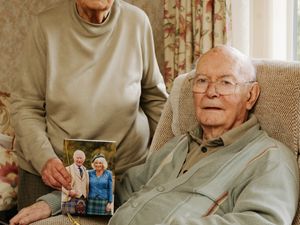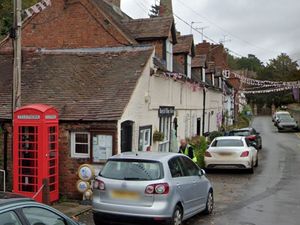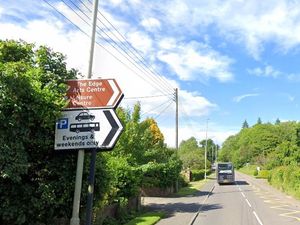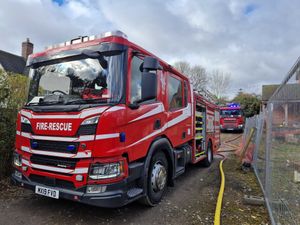How festivals breathe life into our small towns
Peter Wight recounts the sheer joy etched on a festival-goers face as 12 months' work finally came to fruition.
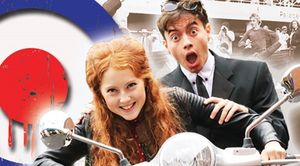
"There was a lady in a wheelchair, we got her across the church green, and made sure she had everything she wanted," he recalls.
"Afterwards she said to me 'that was one of the most amazing events I have ever been to'. To us, we were just doing what we would normally do, but to her it was very special."
Peter, chairman of Much Wenlock Festival, admits emotions can run high when he sees the culmination of a year's hard work.
"On the big nights it's very emotional, because really what you are seeing is what you thought would be a success has turned into a success."
As high streets up and down the country are under pressure due to a rapidly changing economic outlook, festivals in small market towns can play a hugely important role in keeping their communities vibrant.
This is perhaps most apparent in Ludlow, where the town's famous food festival, first held in its original form in 1960, helped transform the town into a renowned centre for gastronomy.
But in the smaller towns which make up much of Shropshire, the role of community events is no less important.
Peter is hoping to sell between 3,000 and 3,500 tickets for this year's fortnight-long festival in Much Wenlock. In a town with a population of 2,800, it's not bad going.
"For the last festival, people came from the Peak District and from Hull. I would expect that a good half of them will come from outside of Much Wenlock," says Peter.
"I think for a town like Much Wenlock it's crucial we have something where we are punching above our weight.
"In Much Wenlock, it's mainly small independent shops, apart from Spar there are no multiples, and that's the way we want to keep it. They definitely see and uptick in their takings during that fortnight."
Festivals also play an important role in Newport, which has just announced the headline acts for its Proms and Prosecco classical music festival in September. Soprano Mary-Jess Leaverland and tenor Jack Foley will take centre stage at the event in Chetwynd Deer Park.
Music is also plays an important part in Bridgnorth's festival calendar, with the town's English Haydn Festival celebrating its 25th anniversary during this year's event from June 6-10, while the Bridgnorth Music and Arts Festival includes performances of rock and folk music during its run from August 17-27.
Back in Much Wenlock, Peter says this year's programme is more varied than in previous years, although there is a deliberate policy of keeping things mainstream.
"I think if we didn't have Oddsocks back there would be a riot in the town," he says, referring to the avant-garde theatre company which will be giving two Shakespeare plays a modern-day twist.
Popular comedian Barbara Nice, billed as "a hybrid between Victoria Wood and Mrs Merton", will also be returning, while music will range from a Last Night of the Proms style concert on the opening night, through a big band evening and soul-and-Motown night, to an Abba tribute, folk-music concert and an evening of songs from the shows.
Peter is particularly proud of the Showcase of Young Talent night, in the main marquee on June 4.
"It's great to give a lot of youngsters the opportunity to perform on a big stage, they don't often get these opportunities," he says.
"We will see 50-60 kids perform, I'm a great believer in giving them the opportunity to attend a festival to perform.
"It always leaves me astounded how much talent there is about in Much Wenlock, it's amazing."
Of course, organising a small-town festival requires no little effort, and in the main this is done by teams of dedicated volunteers. Peter says he spends an average of 10-12 hours every week throughout the year, and work on the next event begins almost immediately after the previous festival closes. Red tape is a growing factor, with risk assessments, reports on equality implications and the like taking up an increasing amount of time.
Lessons have been learned over the years. In years gone by, an open-air Shakespeare production was central to the festival, but all major acts are now held inside a giant marquee after one year's festival was severely disrupted by rain. Events which failed to live up to expectations have been dropped, and replaced by ones more in tune with what festival-goers want to see.
For all the efforts, Peter says the rewards of seeing thousands of people enjoy themselves are huge. And he says the benefits of raising the profile of the town and attracting new visitors are crucial too.
"With internet shopping, its getting harder and harder for retailers to exist, never mind in a small town," he says.
"That's especially the case for people from outside the town who will come and have a look around Much Wenlock during that fortnight.
"We are fundraising, providing entertainment and promoting the town."

